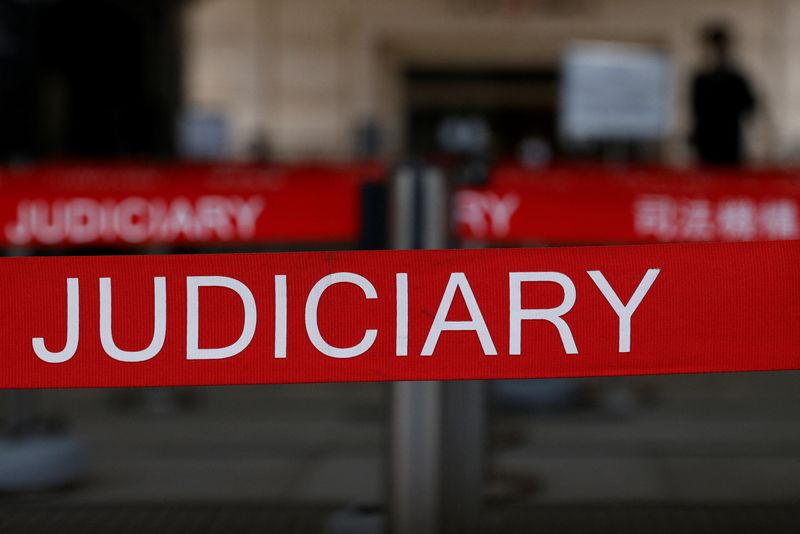Hong Kong court lifts reporting restriction on national security case
2022.08.17 08:45

A view shows queue tapes at West Kowloon Magistrates’ Courts, in Hong Kong, China August 17, 2022. REUTERS/Tyrone Siu
By Jessie Pang and James Pomfret
HONG KONG (Reuters) – A Hong Kong court on Wednesday lifted a reporting restriction on a landmark national security case involving a now disbanded group that used to organise candlelight vigils on the anniversary of the Tiananmen Square crackdown.
The decision follows a ruling by High Court judge Alex Lee this month, overturning a ruling by lower court magistrate Peter Law who had blocked applications to allow open reporting of pre-trial proceedings – known as committal hearings.
The lifting of the reporting restrictions was seen as a breakthrough by some activists. It is the first time reporting will be allowed for pre-trial hearings for a national security case in Hong Kong.
The case involves a group called the Hong Kong Alliance in Support of Patriotic Democratic Movements of China and three of its former leaders: Lee Cheuk-yan, 65, Chow Hang-tung, 37, and Albert Ho, 70, who have been charged with inciting subversion of state power under a China-imposed national security law.
Since the three were arrested and charged last September, they have been repeatedly denied bail and nothing but basic details from numerous court hearings have been reported.
Law had previously declined to lift the ban, saying reporting could put “mental pressure” on witnesses. But Lee disputed that, saying Law had “erred” in his decision and that reporting should be allowed in the interests of “open justice”.
In lifting the restriction, Law dismissed arguments from the prosecutor that some of the hearings should still be subject to closed-door restrictions, including a preliminary inquiry.
The Alliance disbanded last September after the arrests of its leaders and a freeze on its assets.
Authorities in the former British colony have taken steps in recent years to prevent commemorations of the 1989 Tiananmen crackdown in Beijing, most recently citing COVID-19 precautions.








